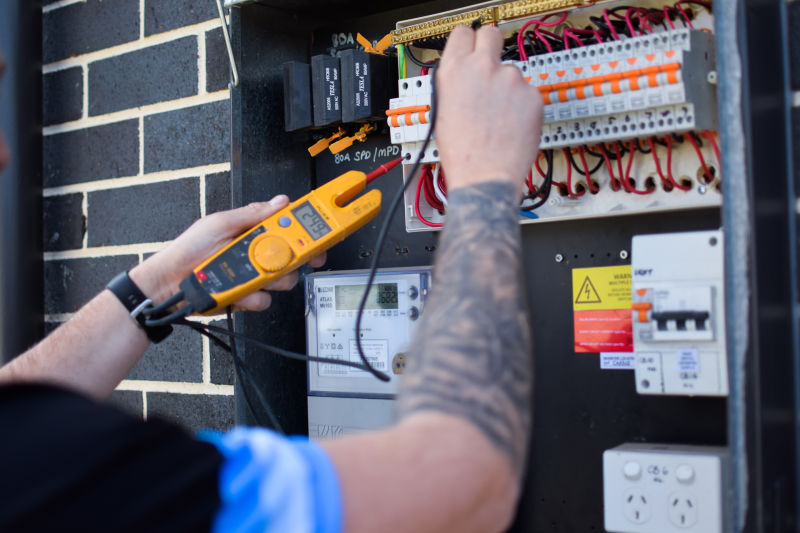The safety of electricity is a key aspect of home and business maintenance that frequently goes overlooked. Many people do not understand the imminent hazards hiding behind walls and beneath floors until it's past the point of no return. This is where electrical inspections come into action. These detailed assessments help reveal issues that could pose significant risks, such as fire hazards, electrical shock, or malfunction of equipment. Understanding what an assessment of electrical systems entails and why it is important can protect lives and properties simultaneously.
From spotting common problems to making sure with safety standards, electrical inspections play a crucial role in keeping both residential and business properties safe. Whether you are a property owner, a first-time buyer, or a business owner, staying informed about the significance of these inspections can help safeguard your investments and guarantee the safety of everyone in your space. As we explore the details of electrical assessments, you'll discover how consistent assessments can stop disasters and foster a safe, optimized, and energy-conscious environment.
Comprehending Electric Assessments
Electric inspections are a critical element of home and commercial property care. They consist of a detailed evaluation of the electrical networks, cabling, and parts to confirm they satisfy security standards and regulations. The primary aim is to spot any possible risks or code violations that could present dangers such as electrical fires or appliance failures. Regular evaluations help provide safe conditions for residents and shield precious investments.
The importance of electric assessments cannot be overstated. They not only boost safety but also play a vital role in boosting power performance. By detecting old or defective networks, assessments can lead to upgrades that increase the overall power performance of a property. This preventative approach often yields lower energy bills and a lowered environmental footprint, making it beneficial for both residents and businesses.
For property owners, grasping the power inspection process is key. During an examination, a licensed professional reviews the state of all electrical networks, from power panels to receptacles. They inspect for any indicators of tear or damage and review compliance with the latest electrical codes. Knowing what to anticipate can alleviate fears and guarantee that necessary fixes are quickly addressed, ultimately protecting both the property and its inhabitants.
Common Issues and Hazards
During electrical assessments, several common issues can be identified that pose risks to safety and functionality. One of the most frequent problems is outdated wiring, which can lead to circuit failures and electrical fires. EICR Certificates Fife have wiring that does not meet current electrical codes or is made from materials that have deteriorated over time. Additionally, insufficient grounding and connections can expose a property to electrocution risks and increase the likelihood of equipment damage.
Another significant problem is circuits that are overloaded, which can result from an overabundance of appliances plugged into a single outlet or circuit. This issue is particularly common in older homes where the wiring were designed for a much lower demand. Inspectors often find misuse of extension cords and power strips, which, although handy, can contribute to overheating and fires if not watched properly.
Faulty installation of wiring elements is also a key observation during inspections. This includes loose wiring connections, missing cover plates, and faulty outlets or switches. Such concerns can not only lead to safety hazards but can also affect the reliability of electrical systems in a home or construction. Resolving these frequent problems through scheduled assessments is crucial to ensuring a safe and efficient electrical environment.
The Importance of Frequent Evaluations
Regular electrical checks are essential for maintaining the safety and efficiency of all property. As time goes on, deterioration can lead to issues that may not be immediately visible to residents or entrepreneurs. Checks help identify possible dangers, such as electrical faults, overloaded circuits, and old electrical systems that could pose fire risks. By dealing with these concerns proactively, property owners can significantly reduce the risk of electrical breakdowns and promote the safety of their inhabitants.

Furthermore, regular evaluations play a crucial role in compliance with local codes and legislation. Numerous locations require electrical inspections to meet safety standards, especially in historic properties or post significant upgrades. By arranging routine evaluations, homeowners and landlords demonstrate commitment in maintaining safe living spaces. This compliance not only ensures the safety of residents but also helps avoid legal issues and penalties related to code violations.
In addition to protection and adherence, routine electrical inspections contribute to the total performance and durability of electrical systems. Detecting and fixing problems can lead to decreased energy bills and better performance of electrical equipment. Homeowners and businesses that value these checks efficiently preserve their assets, boost the value of their properties, and experience peace of mind knowing their electrical systems are in optimal shape.
